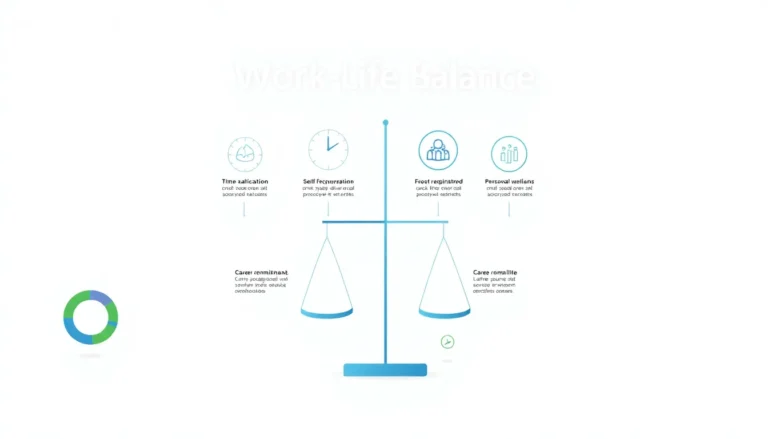Table of Contents
ToggleImagine your brain as a cozy little attic, stuffed with old furniture and a few dusty boxes, tangible remnants of experiences, lessons, and belief systems. Now, picture the transformative power of a good spring cleaning. A powerful mindset shift can clear out those cobwebs and let in the sunshine. In today’s fast-paced world, cultivating the right mindset isn’t just beneficial: it’s crucial. This article dives deep into why mindset matters and how it shapes every arena of life, from emotional well-being to professional success. Prepare to unveil the secrets that will inspire you to rethink, realign, and recharge your approach to life.
Understanding Mindset

Mindsets are mental frameworks that shape our perceptions, reactions, and decision-making processes. They are like invisible scripts guiding our responses and interpretations in various situations.
The Power of Positive Thinking
Positive thinking isn’t about donning rose-colored glasses, it’s about acknowledging challenges while believing in one’s ability to overcome them. Research shows that harboring a pragmatic yet positive mindset can significantly enhance resilience. When faced with obstacles, individuals with a positive outlook tend to see opportunities rather than roadblocks. This fundamental shift acts like a reset button for the brain, potentially leading to better outcomes in work and personal life.
Building a Growth Mindset
Coined by psychologist Carol Dweck, the term growth mindset reflects the belief that abilities and intelligence can be developed. A person with a growth mindset sees failure as a learning opportunity, not a dead-end. This perspective encourages continuous improvement and adaptability. For example, rather than saying, “I can’t do this,” one might say, “I can’t do this yet.” This subtle shift opens a dialogue with oneself that promotes growth and innovation.
The Influence of Mindset on Behavior
Mindset isn’t just an abstract concept: it significantly impacts behaviors, influencing emotional stability and workplace dynamics.
Mindset and Emotional Well-Being
The link between mindset and emotional well-being is profound. A negative mindset can lead to feelings of anxiety and hopelessness, while a positive mindset can promote confidence and emotional strength. Individuals who practice self-compassion and optimism often experience lower levels of stress and higher levels of happiness. Cultivating a constructive mindset, hence, is not just about feeling good: it’s a crucial element in fostering emotional resilience.
Mindset in the Workplace
In professional settings, mindset plays a pivotal role. Teams with a collective growth mindset often exhibit greater collaboration and creativity. They are willing to take calculated risks and learn from failures. In contrast, those with a fixed mindset may shy away from challenges, which can stifle innovation. Companies that prioritize cultivating a growth-oriented culture see increased employee engagement and productivity. Indeed, a positive collective mindset can be the secret sauce for achieving collective goals.
Shifting Your Mindset
Changing a mindset may seem daunting, but it starts with intentional shifts in daily practices.
Practical Strategies to Change Your Mindset
To initiate this transformation, consider the following strategies:
- Practice Gratitude: Begin a gratitude journal to focus on positives. Each day, jot down three things you appreciate. This simple act can significantly shift your overall mindset.
- Surround Yourself with Positivity: Engage with people who uplift you. Their energy can be contagious and inspire you to adopt a more positive outlook.
- Embrace Failure: When you stumble, instead of wallowing, analyze what went wrong. This reflective practice can foster a growth mindset. Remember, it’s all part of the learning process.
- Set Achievable Goals: Break down larger goals into smaller, manageable tasks. Celebrate these small victories to reinforce a sense of progress and achievement.
Overcoming Limiting Beliefs
Limited beliefs act like invisible chains holding many back from realizing their full potential. These beliefs typically arise from past experiences or ingrained societal expectations. Recognizing and dismantling them is an essential step in fostering a healthier mindset.
To overcome these chains, individuals must first identify their limiting beliefs. Ask questions like, “What fears are holding me back?” and “Where did these beliefs originate?” Once these beliefs are acknowledged, replacing them with empowering alternatives becomes crucial. For example, shifting the belief “I am not good enough” to “I am capable of growth and success” empowers individuals to step out of their comfort zones and nurture change.







